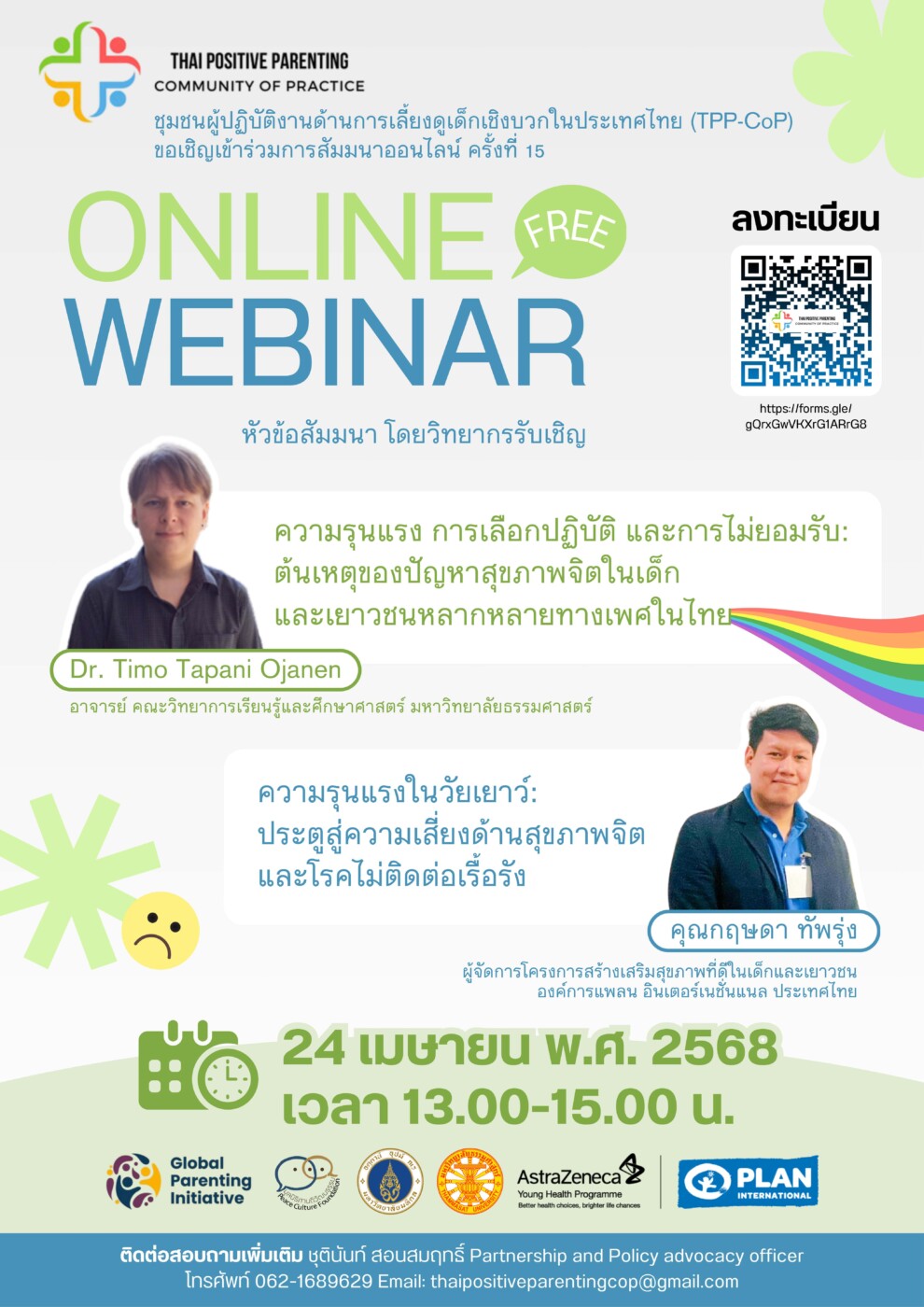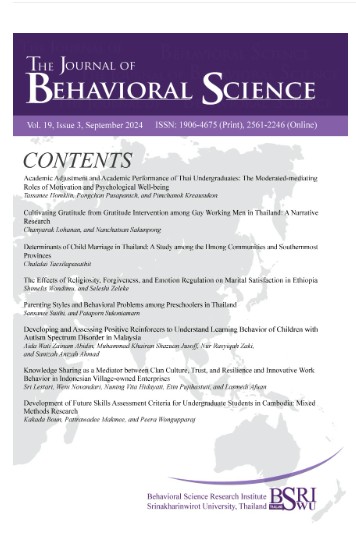Author
Dutsadee Juengsiragulwit, M.D. , Amara Thanasuparutana, M.P.A. Bureau of Mental Health Service Administration, Department of Mental Health , Rajanagarindra Institute of Child Development, Department of Mental Health
Abstract
Objective: To assess the effect of the Thai preschool parenting program (Thai Triple-P) on development and emotional intelligence in children at risk of developmental delay.
Methods: A quasi-experimental study was conducted among children aged 3 - 5 at risk of developmental delay and their parents in Chiang Mai Province. Thirty-one pairs of children and parents in the control group received routine developmental promotion following the developmental surveillance promotion manual (DSPM). Forty pairs of children and parents in the experimental group additionally received the Triple-P program, a group activity of four sessions for 10 - 15 pairs lasting 90 - 120 minutes each. Measurements before and one month after the experiment included the child development assessment form according to the DSPM, the emotional quotient (EQ) assessment form for children aged 3 - 5 years (parents version), and the 32-item preschool parenting practice scale. The percentages of children with age-appropriate development and average EQ and parenting skills scores were compared between groups using chi-square test and independent t-test, respectively.
Results: Before the experiment, the percentages of children with age-appropriate development in the experimental and control groups were 10% and 6.5%, respectively (p = 0.48). Their average EQ scores were 42.9 and 44.3, respectively (p = 0.27). Average parenting skills scores were 111.7 and 109.71, respectively (p = 0.64). After the experiment, the percentages of children with age-appropriate development in the experimental and control groups was 90% and 36.7%, respectively (p < .01). Their average EQ scores were 48.6 and 45.2, respectively (p < .01). The average parenting skills scores were 128.7 and 114.3, respectively (p < .01).
Conclusion: The Triple-P program could improve development and EQ among preschool children at risk of developmental delay, as well as parenting skills of their patents. Scaling up of the program in the public health system is applicable.
Method quasi-experimental study
Journal Journal of Mental Health of Thailand
Year: 2024 2023
Link for further study: https://www.donsak.go.th/fileupload/1755005386.pdf




